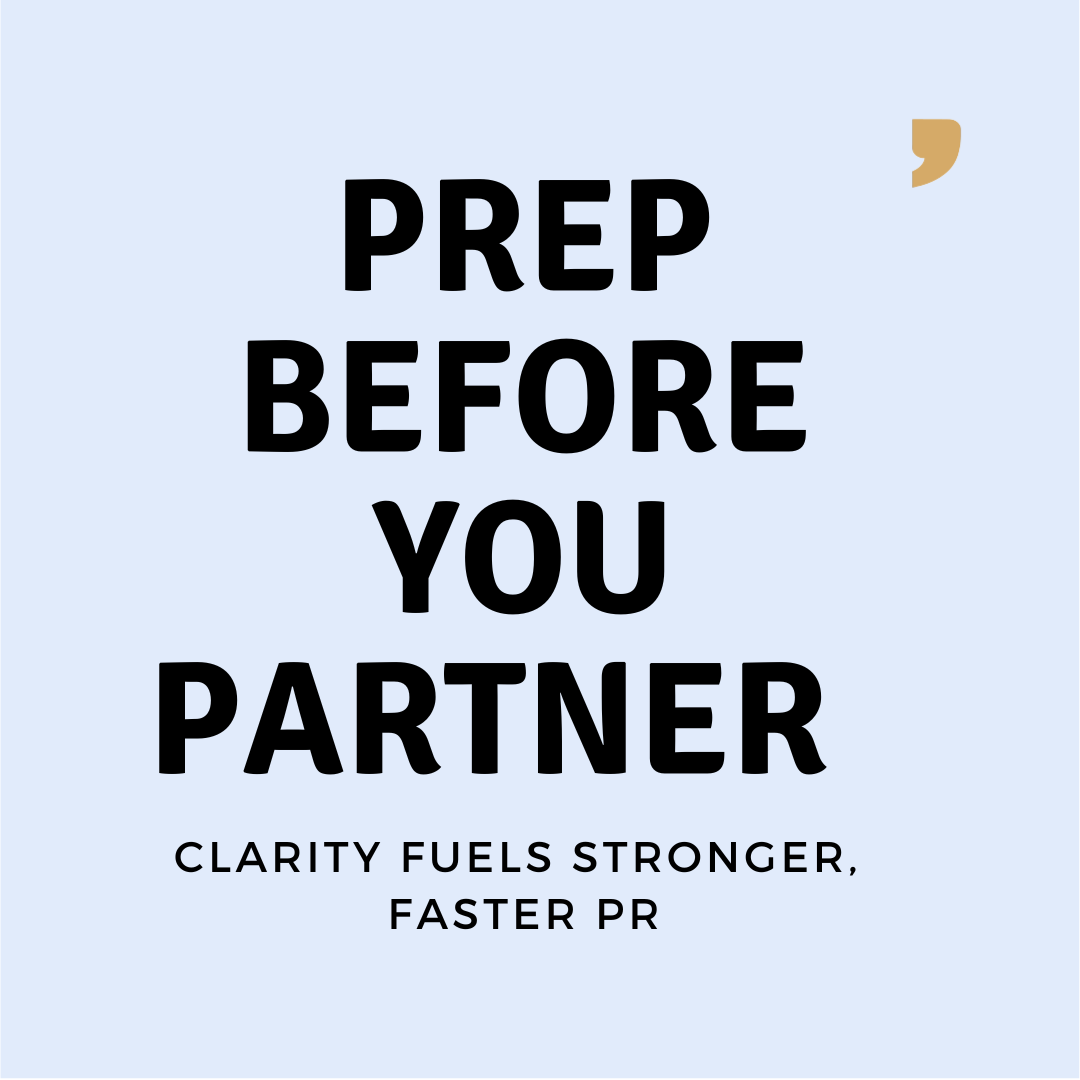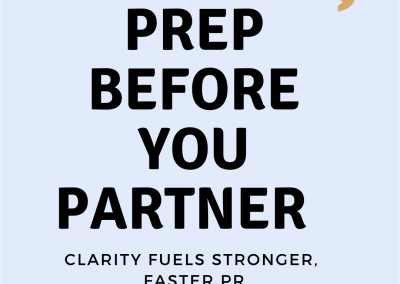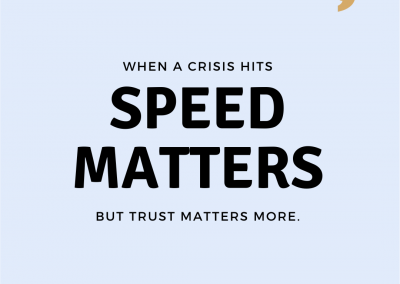First of all: Before engaging an agency, get your house in order. The more open, prepared, and realistic you are, the faster you’ll see impact — and the stronger your story will land in the market.
Starting a PR program with an agency isn’t just about signing a contract — it’s about building a strategic partnership. The success of your PR efforts will depend on how well you prepare and what you share upfront. Here’s what to consider before you hit “go”:
- Define your PR goals.
Are you aiming for thought leadership, brand awareness, crisis preparedness, investor visibility, or product launches? A clear focus helps your agency tailor the right strategy. - Be transparent about your brand story.
Agencies can’t build compelling narratives out of thin air. They’ll need: - Your founding story & mission
- Customer successes and pain points solved
- Past PR coverage (positive or negative)
- Key differentiators versus competitors
- Vision for the future
- Share the good, the bad, and the ugly.
If there are skeletons in the closet — legal disputes, negative reviews, or internal challenges — share them. Good agencies help you plan for issues proactively, but only if they know about them. - Align on target audiences.
Your agency needs to know precisely who you want to influence: industry analysts, trade press, mainstream business outlets, potential customers, future hires? Each audience requires a different message and media approach. - Set realistic expectations.
PR is a long game. Major features in top-tier media usually take months, not weeks. Discuss metrics of success: share of voice, sentiment, quality of coverage, message pull-through — not just “number of mentions.” - Be ready to collaborate.
The best PR programs rely on fast, open communication. You’ll be asked to: - Approve story angles
- Provide access to executives
- Share data or customer references
- Participate in interviews
- Invest in assets.
Great PR needs supporting materials: strong website messaging, professional headshots, media kits, customer testimonials, and data-backed proof points. Without them, you’re making the agency’s job harder. - Respect the craft.
PR professionals are your brand stewards — treat them as partners, not vendors. Their work is about influence, reputation, and trust, not just churning out press releases.
Happy to answer questions on this! We’ve seen far too many brands dive in unprepared. Let’s change that.





0 Comments